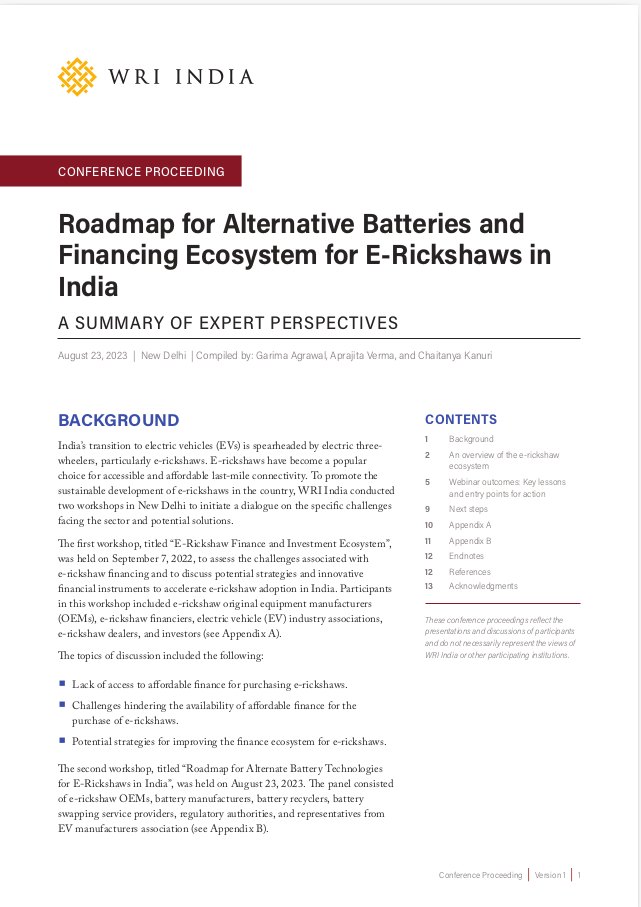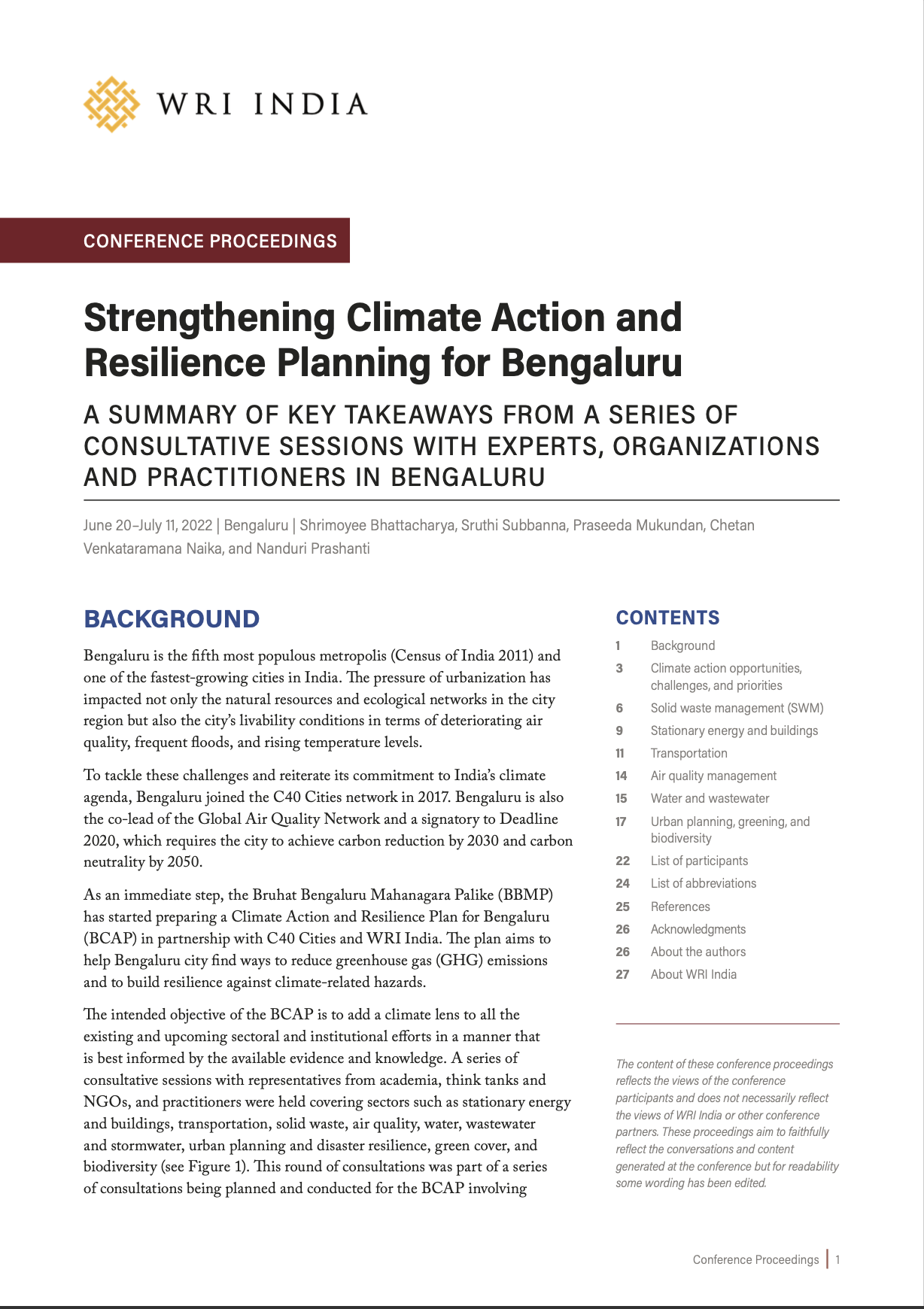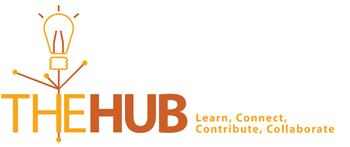We document best practices, work on capacity building programs and invest in knowledge management. View our publications to learn more.
PUBLICATIONS

Electric three-wheelers, particularly electric rickshaws, are a crucial mode of affordable and shared mobility in Indian cities, serving over 3 million people in their daily commutes. They are popular both in urban centers and remote areas, providing essential connectivity between small towns and villages.
E-rickshaws contribute significantly to environmental sustainability and…
Auto-rickshaws are a key mode of affordable and shared mobility in Indian cities, serving up to 25 percent of all motorized trips. They are especially popular among women and other vulnerable groups who have lower vehicle ownership and diverse travel needs that public transport networks do not meet.
Electric auto-rickshaws (e-autos) offer significant environmental and socio-economic…
Based on WRI India’s work in Maharashtra, Karnataka and Kerala, the report drives the case for integrating equity into climate action planning, enabling Indian city officials, planners, consultants and community members to deepen their understanding of urban climate hazards, its causes and its impact on communities
…
The working paper, identifies specific battery technologies that are preferred for powering e-buses in different geographical locations across the world and assesses their performance under different environmental conditions. The paper studies how different stress factors contribute to the ageing of batteries and their overall impact on the automotive life of e-bus batteries. It also provides…
The global transportation sector, responsible for 25% of energy consumption and 28% of greenhouse gas emissions, faces climate challenges. Freight vehicles, 3% of the vehicular population, contribute significantly to emissions. The e-FAST India initiative, launched on September 7, 2022, addresses these concerns, focusing on road freight electrification. NITI Samvaad, part of the initiative,…

Bengaluru is one of the fastest-growing cities in India. The pressure of urbanization has impacted not only the natural resources and ecological networks in the city region but also the city’s liveability.
To tackle these challenges, Bengaluru joined the C40 Cities network in 2017 and as part of its commitment, is preparing a data-driven, inclusive, and collaborative climate action plan…
By 2030, about 90 percent of the lithium-ion battery (LIB) market will be driven by electric vehicles (EVs). The growing EV market is expected create 1.2 million tons of recycling opportunities and over 200 gigawatt-hour (GWh) of second-life utilization opportunities for retired LIBs. Following stringent safety measures while handling LIBs is critical for extended battery durability, its…
The mobility of people and goods is a key driver of economic growth. Equitable access to mobility is an essential prerequisite for creating healthy, resilient, and empowered communities that can engage in economic and social activities. However, vulnerable groups, especially women and girls, lack access to safe and affordable transport options, and thus have limited access to opportunities for…

This conference proceedings examines the policies and regulations needed to enable the reuse and recycling of retired electric vehicle (EV) batteries in India. The document summarizes the proceedings of a focused group discussion hosted by WRI India in collaboration with Deutsche Gesellschaft für Internationale Zusammenarbeit (GIZ) India. The deliberations revolved around the challenges and…
This working paper examines the growth and challenges of public bicycle-sharing (PBS) systems in India, within the context of global efforts towards low-carbon transport. While many Indian cities initially adopted rental-based PBS systems with limited bicycle availability, Mysuru, Bhopal, and Pune emerged as pioneers, introducing innovative models based on public-private partnerships, smart…
Pagination

The Hub used to be our online capacity building platform, between 2000-2010, and was meant to facilitate knowledge sharing, peer learning and collaboration. Do click here to view our archived capacity building modules, publications and reports. We have since moved our capacity building to TheCityFix Learn platform – www.thecityfixlearn.org
